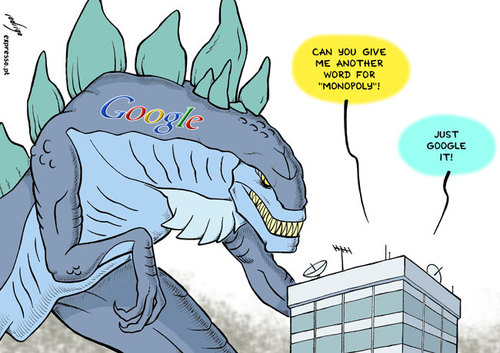
Most of us lack both the inclination and time to investigate the U.S. economy in fine detail (if at all)—and then there are the realities that the economy is both vast and complex. Accordingly, we go about our business, and only concern ourselves with such aspects of our economy as are directly relevant—if, indeed, we go that far.
The word ‘economics’ tends to make eyes glaze over and much of the reporting on it is superficial. Considerable information is out there, but tracking it down and linking the dots is not for the faint of heart—and it is a rare corporation that is not obsessively secretive. And then there is that permanent barrage of propaganda—a regular bodyguard of lies, distraction, consumerism and confusion—which constitutes an omnipresent backdrop to our daily existence.
That situation is an ideal environment for special interests to structure aspects of the economy to their particular advantage. After all, it is much easier to conspire than to compete—and one of the paradoxes of unfettered capitalism—supposedly prospering in a climate of perfect competition—is that it naturally seems to gravitate towards monopoly or de facto monopoly. In addition, business works very hard to influence the regulatory climate to its advantage.
In short, a free market is the last thing most businesses—particularly large businesses--want. They want the deck to be stacked in their favor and have become very good at achieving that happy state. In fact, restraint of trade is so common that most of us regard it as normal.
Why not! After all—it is normal in the U.S.. However, the end result is not a ‘Free Market Economy.’ Essentially, market sector after market sector is structured to restrict competition and to drive prices up. Conspiracy, secrecy, and restraint of trade rarely work to the advantage of the consumer.
U.S. business seems to be particularly adroit at using legislation to its advantage. Whereas the EU regularly prosecutes companies which it feels have stepped out of line—and imposes significant penalties—U.S. government, though it has broadly similar laws on the books, certainly does not enforce them with the same vigor. Under Republican administrations, it rarely enforces them at all.
Examples of restraint of trade are legion. For instance, the number of doctors is kept restricted in all kinds of ways, and though nurse practitioners could do much the same job as primary care physicians, (at much lower cost) they are largely prevented from doing so.
Similarly (though it is hard to believe) the supply of lawyers is kept restricted (which keeps fees up).
A completely egregious example of the free market not being allowed to function concerns the U.S. government being forbidden by legislation from negotiating down the prices of the drugs purchased under the Bush Medicare Modernization Act.
One of my favorite examples of restraint of trade concerns car dealerships. Research shows that a majority of consumers would prefer to buy their vehicles direct from the manufacturers. It could bring the prices down significantly. They aren’t allowed to because of the dealership franchise laws which are in force in just about every state.
There is no justification for these franchise laws, but they are enshrined in the current American Business Model.
Between monopolies, de facto monopolies, and endemic restraint of trade, the concept of a Free Market Economy has little to do with the reality, but might best be considered part of the Great American Illusion.
A consistent theme in all this—part of the hijacking of the U.S. economy—is that the end result is to the advantage of a few at the expense of the many.
What we really have in the U.S. is a plutonomy. It is defined as follows:
A plutonomy is a form of capitalism that is designed to make the rich who control a nation's government and its economy—aka, the plutocrats—even richer. Cornerstone policies of plutonomies include government deregulation and reduced taxes on the rich. In order to sell the idea of plutonomy to the citizens of a democracy, the plutocrats must convince average citizens that trickle down economics will not only work, but ultimately make it possible for them to get rich, too.
Ajay Kapur, a global strategist at Citigroup, coined the term,[1] which became public knowledge on 16 October 2005 when Citigroup published a large memo defining the meaning and the scope of the term.
Yes, it is extremely hard to distinguish between a PLUTONOMY and FASCISM. Arguably, the transition point is when the alliance between Big Business and Government becomes palpable, when oppression becomes the norm, and when there is clearly one law for the rich and one law for the rest.
The failure to prosecute those responsible for the Great Recession and the evolution of a highly militarized surveillance state in the U.S. bring us a great deal closer to the reality of Fascism.
Are we there yet? We could be. Today, if or when Fascism arrives, most of us are likely to be unaware of that fact. Propaganda is now so effective that it keeps us distracted from what is actually happening. Both the Mid-terms and Presidential elections illustrate the point. It is noteworthy that there is vastly more media coverage of the horse-race aspect than the issues.
Is what we see on TV, and over the internet reality, or are we in a version of The Truman Show?
No comments:
Post a Comment